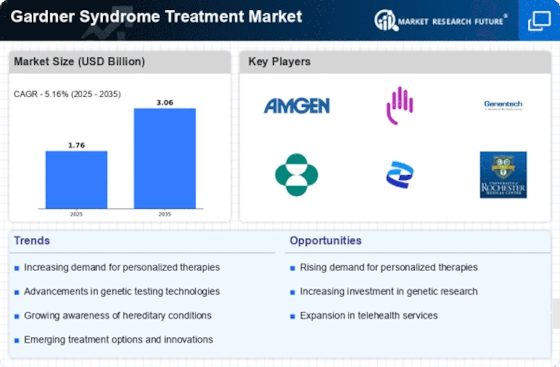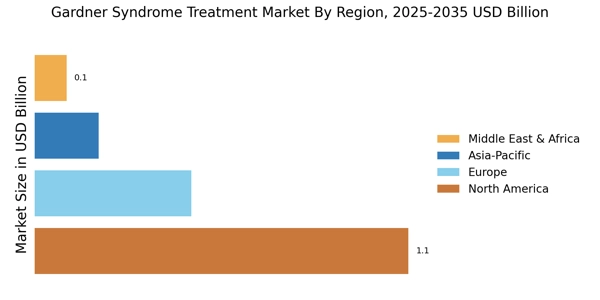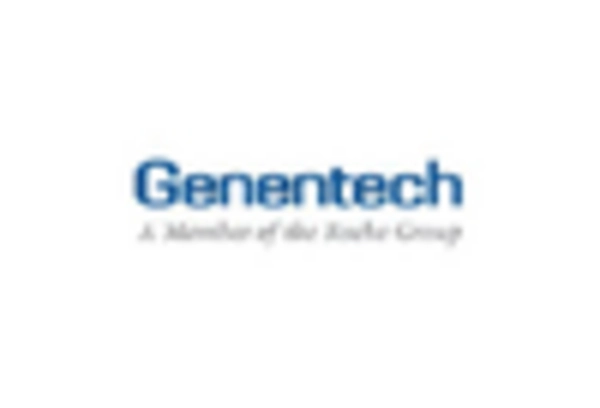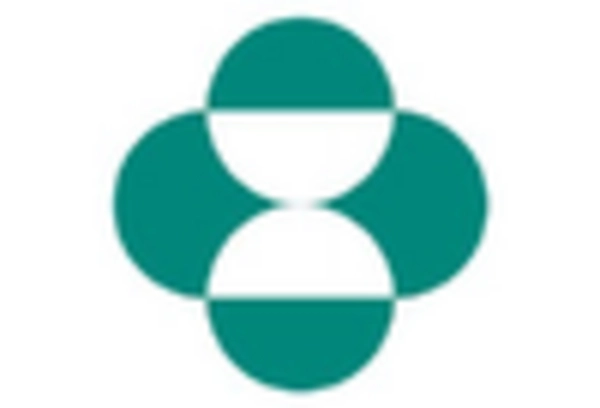Advancements in Genetic Research
Advancements in genetic research are significantly influencing the Gardner Syndrome Treatment Market. The identification of specific genetic mutations associated with Gardner Syndrome has opened new avenues for targeted therapies. Research indicates that understanding the molecular basis of the disease can lead to more effective treatment strategies. For instance, the development of gene therapies and personalized medicine approaches is becoming increasingly feasible. This shift towards precision medicine is expected to enhance treatment outcomes and patient satisfaction. As research institutions and pharmaceutical companies invest in genetic studies, the Gardner Syndrome Treatment Market is poised for growth, with a focus on innovative therapeutic options that address the unique needs of patients.
Rising Incidence of Gardner Syndrome
The increasing incidence of Gardner Syndrome appears to be a primary driver for the Gardner Syndrome Treatment Market. As awareness of genetic disorders rises, more individuals are being diagnosed with this condition. Recent estimates suggest that the prevalence of Gardner Syndrome may be around 1 in 8,000 to 1 in 10,000 individuals. This growing patient population necessitates the development of targeted treatment options, thereby propelling market growth. Furthermore, the rising number of genetic testing initiatives contributes to early detection, which is crucial for effective management. As healthcare systems adapt to these trends, the Gardner Syndrome Treatment Market is likely to expand, driven by the demand for innovative therapies and comprehensive care solutions.
Growing Awareness and Education Initiatives
Growing awareness and education initiatives regarding Gardner Syndrome are playing a pivotal role in shaping the Gardner Syndrome Treatment Market. Increased public and professional knowledge about the condition is leading to more timely diagnoses and treatment interventions. Educational campaigns aimed at healthcare providers and the general public are crucial in promoting understanding of the symptoms and genetic implications of Gardner Syndrome. As awareness rises, more patients are likely to seek medical advice, resulting in a higher demand for treatment options. This trend is expected to drive the growth of the Gardner Syndrome Treatment Market, as healthcare providers respond to the increasing need for effective therapies and support services.
Regulatory Support for Innovative Therapies
Regulatory support for innovative therapies is emerging as a significant driver for the Gardner Syndrome Treatment Market. Regulatory agencies are increasingly recognizing the need for expedited approval processes for treatments targeting rare genetic disorders. This support is crucial for pharmaceutical companies developing novel therapies for Gardner Syndrome, as it can reduce the time and cost associated with bringing new treatments to market. Additionally, incentives such as orphan drug designations can encourage investment in research and development. As regulatory frameworks evolve to support innovation, the Gardner Syndrome Treatment Market is likely to experience accelerated growth, with a focus on bringing effective therapies to patients in need.
Increased Investment in Healthcare Infrastructure
Increased investment in healthcare infrastructure is another critical driver for the Gardner Syndrome Treatment Market. Governments and private entities are allocating more resources to enhance healthcare facilities and services, particularly in the realm of genetic disorders. This trend is evident in various regions, where healthcare systems are being upgraded to accommodate advanced diagnostic tools and treatment modalities. The establishment of specialized clinics for genetic disorders, including Gardner Syndrome, is becoming more common. Such investments not only improve access to care but also foster research and development initiatives. Consequently, the Gardner Syndrome Treatment Market is likely to benefit from these enhancements, as they facilitate better patient management and treatment options.

















